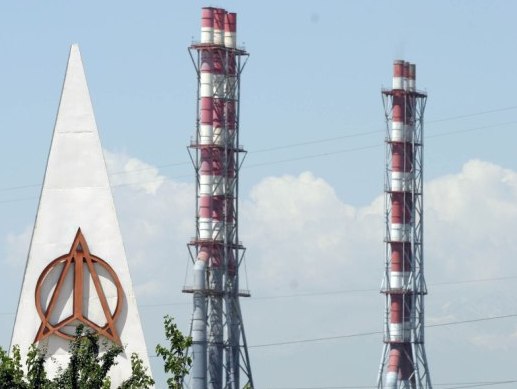DUSHANBE, September 7, Asia-Plus — Uzbekistan has sent a protest letter to the United Nations complaining of the environmental damage from Tajik aluminum smelter.
Uzbek media outlets report an appeal by residents of Uzbekistan’s Surkhondaryo region to the United Nations General Assembly was handed over by the Uzbek Environmental Movement (UEM) to the UNDP CO in Uzbekistan on September 6.
The appeal that was reportedly signed by more than 757,000 residents of the Surkhondaryo region, in particular, says that people have experienced the catastrophic effects of pollution of the environment by the aluminum smelter in the neighboring Tajikistan for thirty-five years.
According to the appeal, the enterprise discharges hazardous substances, including anhydrous hydrogen fluoride, into the atmosphere and these emissions pollute the air not only in Tajikistan but also in southern regions of Uzbekistan. UEM claims the enterprise discharges up to 22,000 tons of hazardous substances, including 120 tons of anhydrous hydrogen fluoride, into the atmosphere. The Tajik Aluminum Company has reportedly caused the environmental damage to Sariasiyo, Uzun, Denau, Altynsay, Shurchin and Kumkurgan districts in the Surkhondaryo region with the total population of more than 1.1 million.
In the meantime, TALCO has rejected allegations by the Uzbek Environmental Movement that its plant caused serious environmental damage to Uzbek regions.
Igor Sattarov, a spokesman for TALCO, says the TALCO management has repeatedly applied to Uzbek environmentalists proposing to carry out examination but they have refused. “This debate is highly politicized, otherwise the Uzbek would have agreed to take joint measurements,” Sattarov noted.
We will recall that the Uzbek Environmental Movement, which has 15 seats in the Uzbek parliament, said in March 2010 that it has calculated the environmental damage from Talco to Uzbekistan”s Surkhondaryo region on the basis of research by Uzbek scientists. It claimed Talco is responsible for some $228 million in damage to four districts in the region.
TALCO, however, denied that statement as unfounded. TALCO top managers noted that they paid proper attention to investment in environment-friendly technology and implementation of environmental projects.




